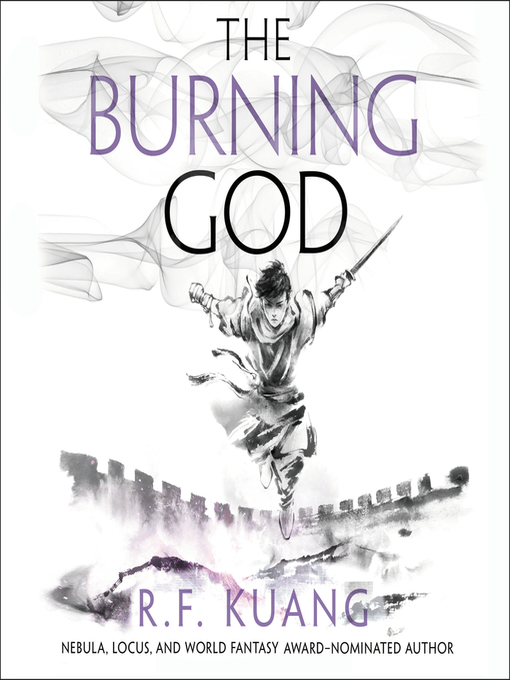

Before you continue you can read more of my thoughts on The Poppy War and The Dragon Republic. I was anticipating The Burning God ever since I read The Poppy War and I am so glad to be here and to incoherently discuss this book (and some musings on the series as a whole in this review (is it a review if I just write sjadabjfb NEZHA, I am not sure, pls advise).

This year has definitely been The Poppy War year for me and since November is almost over, I can say that this series will definitely be in my top 3 of the year. But make sure you don’t have anything else on your calendar, because you won’t be able to put it down.The time has come to talk about The Burning God and if it’s too early for you, it was to early for this series to be over and here we are. If you haven’t already finished the Poppy War trilogy, be sure to read The Burning God now. Kuang’s Poppy War trilogy will prove to be one of the most influential fantasy series of the modern era. Notwithstanding these minor quibbles, The Burning God is an excellent book, and the trilogy as a whole is a masterpiece. Also, when Rin trains new students in the magical arts, it seems way too easy for them to learn compared to how Rin had to learn in the first volume of the trilogy. Sometimes it helps characters access magical powers, and sometimes it prevents them from doing so. I tried to make sense of it, but ultimately gave up and decided to just go with the flow of the novel.Īlso, the role of opium in accessing the power of the gods is inconsistent. The geography as described in the book is inconsistent with the geography as depicted in the map.

I know this is nitpicking, but I have just a few minor quibbles with The Burning God. Rin may be good at waging war, but like Mao she is completely inept as a post-war leader.

The violence of the war is surpassed only by the misery and famine that the war leaves in its wake. Nezha and his father are stand-ins for Chiang Kai-Shek and the Nationalists. Rin is a stand-in for Communist leader Mao Zedong, coming from the peasant class and leading a revolution of the peasants against the aristocracy. The plot parallels that of the Chinese Civil War. In The Burning God, the series reaches its emotional and violent climax. Rin is somehow a sympathetic character while simultaneously committing the most atrocious of war crimes. The characters are all deeply flawed, and the main protagonist, Rin, is an anti-hero of the highest caliber. She has reinvented grimdark fantasy with her magical world that parallels the real-world events in Chinese history, most notably the Opium Wars, World War II, and the Communist Revolution. Kuang has accomplished with the Poppy War trilogy. Kuang’s epic finale to her Chinese history-inspired Poppy War series, which began with The Poppy War and continued with The Dragon Republic.


 0 kommentar(er)
0 kommentar(er)
